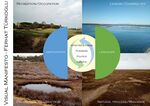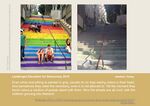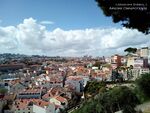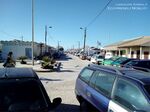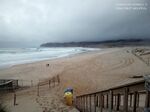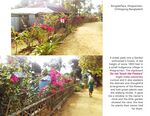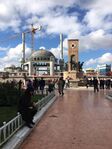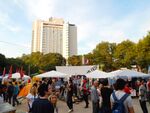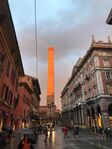LED Online Seminar 2019 - Working Group 8: Difference between revisions
Maria.kroetz (talk | contribs) |
|||
| Line 46: | Line 46: | ||
1. Welk Von Mossner, Alexa (2014): Cinematic Landscapes (Göksen) | 1. Welk Von Mossner, Alexa (2014): Cinematic Landscapes (Göksen) | ||
| Line 58: | Line 57: | ||
1. Potteiger, Matthew, and Jamie Purinton. 1998. Landscape narratives: design practices for telling stories. (Maria) | 1. Potteiger, Matthew, and Jamie Purinton. 1998. Landscape narratives: design practices for telling stories. (Maria) | ||
2. 'Reading the Landscape' by Simon Bell (Tahiti) | |||
=== Steps 3 and 4: Concepts Selection and definition === | === Steps 3 and 4: Concepts Selection and definition === | ||
Revision as of 11:10, 8 May 2019
--> Back to working group overview
Dear working group members. This is your group page and you will be completing the template gradually as we move through the seminar. Good luck and enjoy your collaboration!
Assignment 1 - Reading and Synthesizing Core Terminology
- You can read more details about this assignment here
- Readings are accessible via the resources page
Step 1: Your Landscape Democracy Manifestoes
Step 2: Define your readings
- Please add your readings selection for the terminology exercise before April 24:
A: Landscape and Democracy
1. Burckhardt, Lucius (1979): Why is landscape beautiful? (Göksen)
2. Lynch, Kevin. (1960): The Image of the City (Tahiti)
3. Cosgrove, Denis. (1985): Prospect, Perspective and the Evolution of the Landscape Idea. (Maria)
B: Concepts of Participation
1. The Powerful, the Powerless, and the Experts: Knowledge Struggles in an Information Age. (2019). (Ferhat)
2. Day, Christopher & Parnell, Rosie (2002): Consensus Design (Göksen)
3. Freire, Paulo (2000): Pedagogy of the Oppressed (Maria)
C: Community and Identity
1. Welk Von Mossner, Alexa (2014): Cinematic Landscapes (Göksen)
D: Designing
1. Hester, Randolph (2006): Design for Ecological Democracy - Everyday Future (Tahiti)
E: Communicating a Vision
1. Potteiger, Matthew, and Jamie Purinton. 1998. Landscape narratives: design practices for telling stories. (Maria)
2. 'Reading the Landscape' by Simon Bell (Tahiti)
Steps 3 and 4: Concepts Selection and definition
- Each group member selects three relevant concepts derived from his/her readings and synthesize them/publish them on the wiki by May 15, 2019
- Group members reflect within their groups and define their chosen concepts into a shared definition to be posted on the wiki by June 12, 2019.
- Other group members will be able to comment on the definitions until June 30, 2019
- Each group will also report on their process to come to a set of shared definitions of key landscape democracy concepts on the wiki documentation until July 12, 2019
Concepts and definitions
Author 1: ...
- ......
- .......
- .......
Author 2: ...
- ......
- .......
- .......
Author 3: ...
- ......
- .......
- .......
Author 4: ...
- ......
- .......
- .......
Step 5: Reflection
Step 6: Revised manifestoes
- please look again at your initial manifestoes and update them with any new aspects/prespectives you have taken up during this seminar
Assignment 2 - Your Landscape Symbols
- You can read more details about this assignment here
Landscape Symbols Author 1: Ferhat Türkoglu
Landscape Symbols Author 2: Rahnuma Ahmad Tahiti
Lake Side Square, Zurich, Switzerland. The activity of people in the urban open space with music, food & sightseeing. To me the liberty to enjoy this urban open space with the lake in the front and this scenic beauty, this experience in itself means democracy, and landscape democracy, so to say. 47.3663535,8.5445599
Do not touch the flowers. Location: Khagrachari, Chittagong, Bangladesh. A sneak peek into a garden enthusiast's house, in the height of some 1800 feet in a small indigenous village in Khagrachari. The signboard 'do not touch flowers' might make passersby curious and it also explains the thoughtful arrangements of the flowers and lush green plants near the walking routes. It gave me a window to the owner's mind.23.4115976,92.2712831
Martyr Monument. Location: University Road, Dhaka, Bangladesh. Built in the commemoration of the martyrs killed during the language movement of 21st Feb 1952. The monument symbolizes the importance of Bengali language for the public, as language is one of the basic rights of people. The place stands as a witness of the history as on this exact place the movement took place. It is at the same time a social, cultural and political symbol. 23.7266351,90.3953682
Landscape Symbols Göksen Ezgi Boz: ...
Taksim square represents history. It is a famous place symbolizing the birth of the modern Turkish Republic. Also it’s an important landmark and serves to citizens and tourists as city compass. The city’s heartbeats can be heard from there because it connects people who comes from different taste of politic, religion and philosophies. 41.036876, 28.985157
The Gezi Park is located next to the historical Taksim Square in Beyoglu which is one of the busiest intersections in Istanbul. The park is small but has enough green space to sit down and relax.It provides a comfortable setting for people who need to be away from the chaos of the outside world. It is like a secret garden where people can quietly revitalize. After the protests in 2013, Gezi Park became a more powerful symbol for inhabitants. 41.038871, 28.987050
Istiklal is a historical, commercial and vivid open space in Istanbul. It welcomes thousands of people on their way in the morning and night as well as many tourists dwelling the city. It’s represent social communication and openness. The heart of the city beats here people from all walks of life exist peacefully. 41.035452, 28.982104
Landscape Symbols Author 4: ...
This is the tower of an aqueduct in a suburban area of the city of Bologna, Corticella. In this district this tower, after a process of restructuring the neighborhood to increase the feeling of belonging to it, has acquired a role of territorial demarcation and meeting point of the citizens of Corticella.
Labas is a Political collective of Bologna that has occupied an old barrack in the city center that wasn't being used. Now this collective organizes political and cultural manifestations every week and promotes a space of discussions and cultural appropriation. This picture was taken during a movie's premiere that has takes place on the old barrack occupied by Labas.
Assignment 3 - Role Play on Landscape Democracy "movers and shakers"
- You can read more details about this assignment here
Assignment 4 - Your Landscape Democracy Challenge
- You can read more details about this assignment here
- Each group member will specify a landscape democracy challenge in his/her environment
Landscape Democracy Challenge 1
- Give a title to your challenge
- Yourname challenge 1.jpg
caption: why did you select this case?
- Yourname challenge 2.jpg
caption: what is the issue/conflict (1)
- Yourname challenge 3.jpg
caption: what is the issue/conflict (2)
- Yourname challenge 4.jpg
caption: who are the actors?
Your references:
- ...
- ...
Landscape Democracy Challenge 2
- Give a title to your challenge
- Yourname challenge 1.jpg
caption: why did you select this case?
- Yourname challenge 2.jpg
caption: what is the issue/conflict (1)
- Yourname challenge 3.jpg
caption: what is the issue/conflict (2)
- Yourname challenge 4.jpg
caption: who are the actors?
Your references:
- ...
- ...
Landscape Democracy Challenge 3
- Give a title to your challenge
- Yourname challenge 1.jpg
caption: why did you select this case?
- Yourname challenge 2.jpg
caption: what is the issue/conflict (1)
- Yourname challenge 3.jpg
caption: what is the issue/conflict (2)
- Yourname challenge 4.jpg
caption: who are the actors?
Your references:
- ...
- ...
Landscape Democracy Challenge 4
- Give a title to your challenge
- Yourname challenge 1.jpg
caption: why did you select this case?
- Yourname challenge 2.jpg
caption: what is the issue/conflict (1)
- Yourname challenge 3.jpg
caption: what is the issue/conflict (2)
- Yourname challenge 4.jpg
caption: who are the actors?
Your references:
- ...
- ...
Your Democratic Change Process
- Add Title
- Your Democratic Change Process Slide1.jpg
caption: ...
- Your Democratic Change Process Slide2.jpg
caption: ...
- Your Democratic Change Process Slide3.jpg
caption: ...
- Your Democratic Change Process Slide4.jpg
caption: ...
Reflection
- ....
- ....
- ....
Conclusion:
- ....
- ....
- ....
Your references
- ...
- ...
- ...

